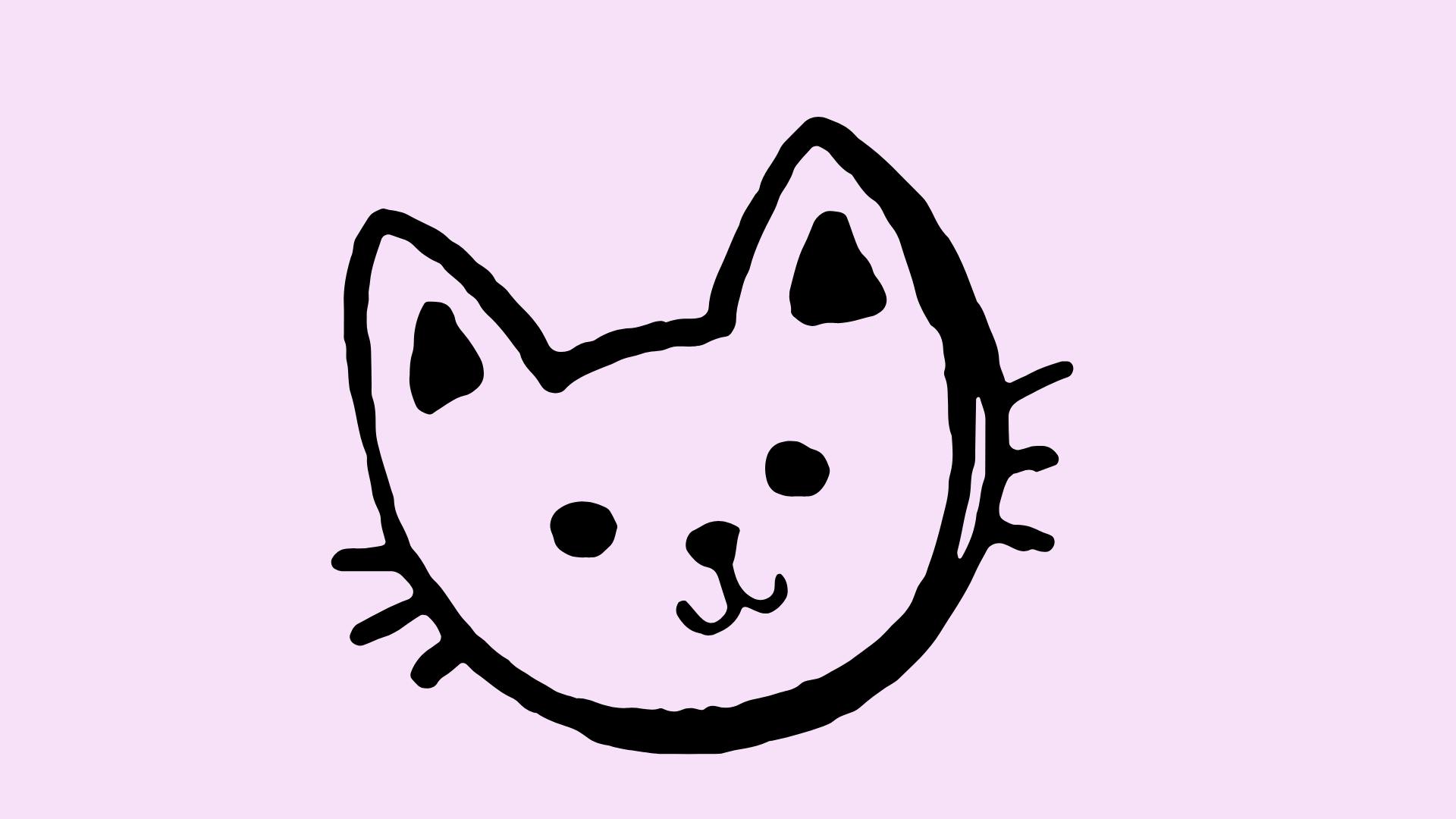Picture this: you run a growing group practice. Your clinicians are seeing clients back-to-back, the admin inbox is overflowing, and the last thing anyone wants at the end of the day is hours of unfinished notes. Now, multiply that across multiple providers, and documentation quickly becomes one of the biggest bottlenecks in running a group practice.
This is where AI therapy note tools come in. Instead of every therapist fighting through notes late at night, AI scribes can capture sessions, draft progress notes in SOAP, DAP, or other formats, and make documentation consistent across your team.
In this guide, we’ll break down what these tools do, why they’re especially powerful for group practices, and review the top AI therapy note solutions for teams.
What Are AI Therapy Note Tools?
AI therapy note tools are software systems powered by artificial intelligence that generate structured progress notes from your sessions. Instead of manually writing SOAP notes or DAP notes, therapists can rely on an AI note generator to draft clinical documentation that is audit-ready.
The process is straightforward:
- Input: Therapists provide the session input through dictation, in-person sessions, telehealth sessions, or audio recording.
- Output: The AI tool produces draft notes in SOAP note format, DAP, or other note formats.
- Review: Clinicians review, edit, and finalize before saving to their EHR.
This blend of natural language processing and AI technology saves time, reduces the mental space spent on note writing, and ensures consistency across therapy notes.
Common Challenges These Tools Solve
Before we talk about benefits, it’s worth understanding the specific problems AI tools address.
Most therapists and especially mental health professionals in private practices or group practices- spend hours every week trying to write notes that are accurate, insurance-ready, and consistent with treatment plans. The pain points include:
- Time lost: Therapists can spend hours each week on repetitive note writing.
- Inconsistency: Session notes often vary in quality depending on fatigue or time pressure.
- Backlogs: Delayed progress notes can cause stress and lead to claim denials.
- Cognitive load: After intense client engagement, note taking adds to burnout.
- Compliance pressure: Maintaining HIPAA compliance, smart treatment plans, and structured formats is harder when done manually.
AI powered note taking solves these issues by producing AI generated notes quickly and securely, allowing mental health providers to stay organized, maintain a golden thread across documentation, and focus more on patient care.
Why Group Practices Benefit the Most
The larger the team, the bigger the payoff from AI note tools.
For group practices, adopting AI therapy notes is more than just a helpful tool; it’s a game-changer.
With multiple mental health practitioners handling dozens of therapy sessions each week, scaling documentation without losing consistency is essential. AI-powered notes provide:
- Consistency in note quality and style across providers
- Easier practice management with custom templates and shared note formats
- Faster onboarding for new clinicians with ready-to-use structured progress notes
- Oversight features for supervisors to review and ensure compliance
- More free time for clinicians, improving self care and therapeutic connection with clients
Ultimately, AI therapy notes help behavioral health teams deliver better client management while reducing admin time.
Top AI Therapy Note Tools for Group Practices
The right AI tool can transform group practices by standardizing progress notes and cutting down hours of admin time.
In this list, we’ve focused on AI therapy notes built specifically for mental health professionals and group practices.
These aren’t generic medical scribes for doctors, they’re designed to handle the unique documentation needs of therapy, from SOAP note format to DAP notes, intake assessments, and even structured progress notes for group therapy sessions. The goal here is to help mental health providers save time, reduce claim denials, and stay compliant while maintaining high-quality clinical documentation.
1. Supanote (Best balance of flexibility and pricing)
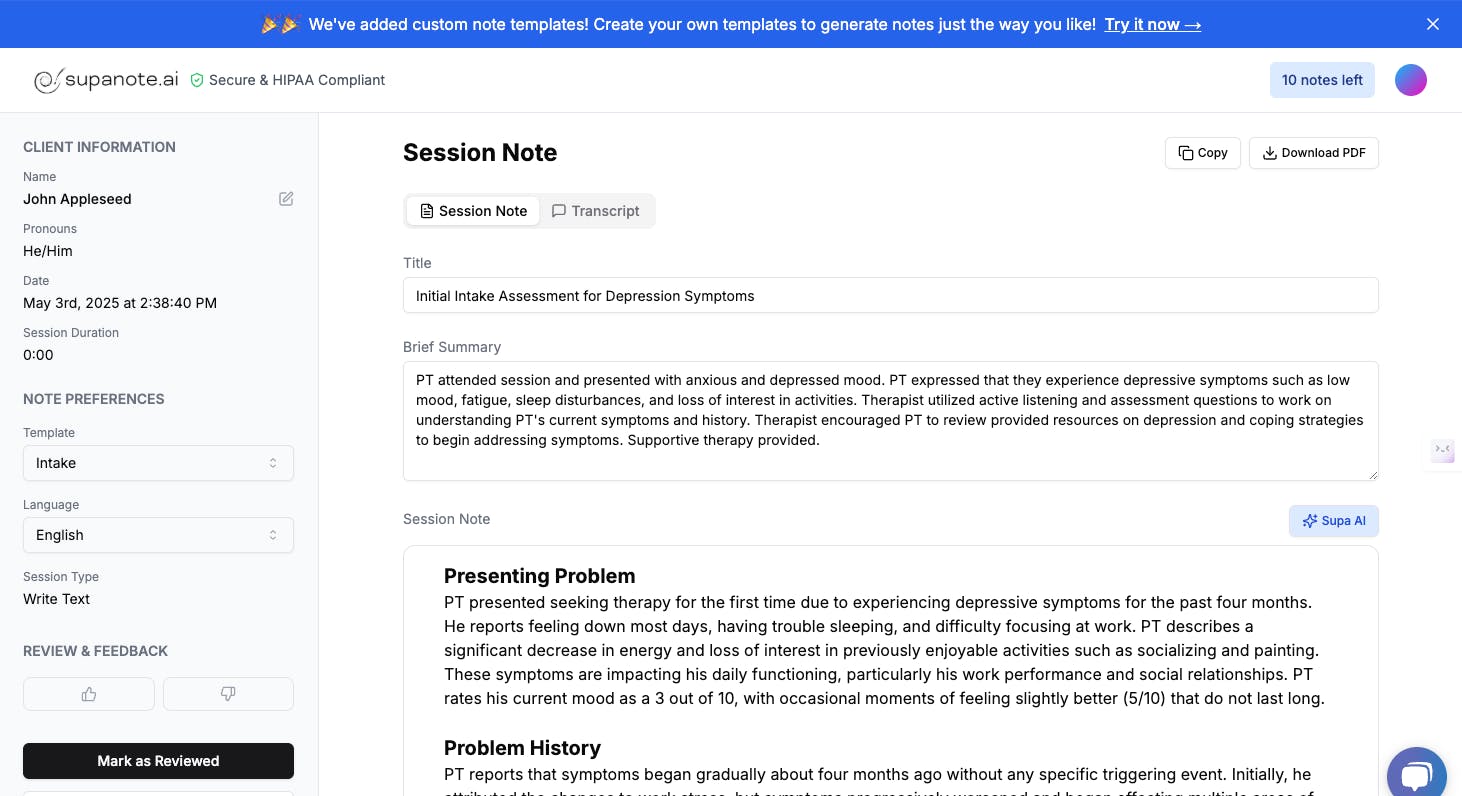
Supanote is often the go-to choice for group practices looking for an affordable, flexible, and user friendly interface that makes writing therapy notes painless.
For group practices, Supanote keeps workflows smooth and efficient. Clinicians can capture sessions live, dictate, or upload audio; customize templates to their style; and instantly push finalized notes into their EHR with the one-click Super Fill autofill feature.
Shared templates and role-based dashboards ensure that every provider in the practice stays consistent, while supervisors have oversight without extra admin work. Supanote processes sessions instantly and deletes audio right after, so nothing is stored. Your notes stay private and HIPAA-compliant by default.
Pros
- Supports all major note formats (SOAP, DAP, GIRP, PIE, EMDR, Intake assessments etc.)
- Handles in person sessions, telehealth sessions, and dictation
- One-click EHR autofill removes copy-paste and saves hours each week
- HIPAA compliance with real-time transcription (no data storage)
- Group practice dashboard with role access
- Affordable, scalable pricing designed for multi-therapist teams
Cons
- Zoom plugin requires browser version
- Team management features are nascent
2. Mentalyc (Strong team management and supervision)
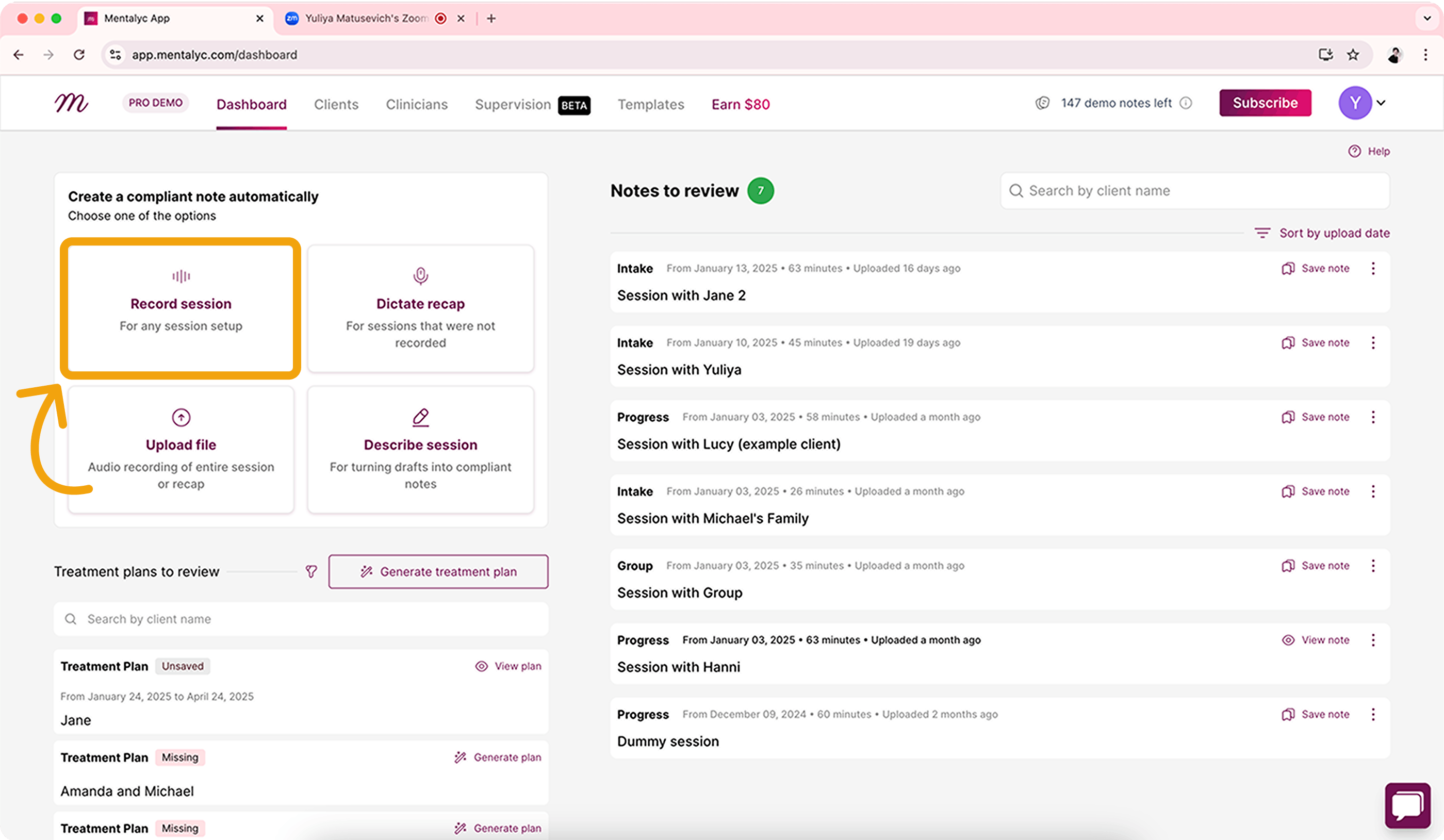
If your group practice values supervision and collaboration, Mentalyc offers one of the most robust team management systems for therapy notes.
Founded by psychologists frustrated with the time spent on progress notes, Mentalyc combines AI-powered note-taking with practice management features. It’s not just about generating AI therapy notes it also makes it easier for supervisors to review structured progress notes across teams and ensure consistency. For group practices with interns, early-career therapists, or multi-site operations, these oversight tools can be invaluable.
Its note writing covers a wide range of formats, including SOAP note format, DAP notes, and EMDR templates. Higher tier plans allow own note templates, giving practices full control over their documentation process.
Pros
- Wide variety of therapy notes (individual, couple, family, and group sessions)
- Strong supervision and team management tools for group practices
- Session summaries that give clinicians and supervisors quick context before therapy sessions
- Higher tier plans allow fully customizable note formats
Cons
- Pricier than most—$60/month per therapist to unlock full features
- Limited functionality in lower pricing plans
- Zoom requires browser-based setup, no direct plugin
3. Upheal (Best for analytics and training)
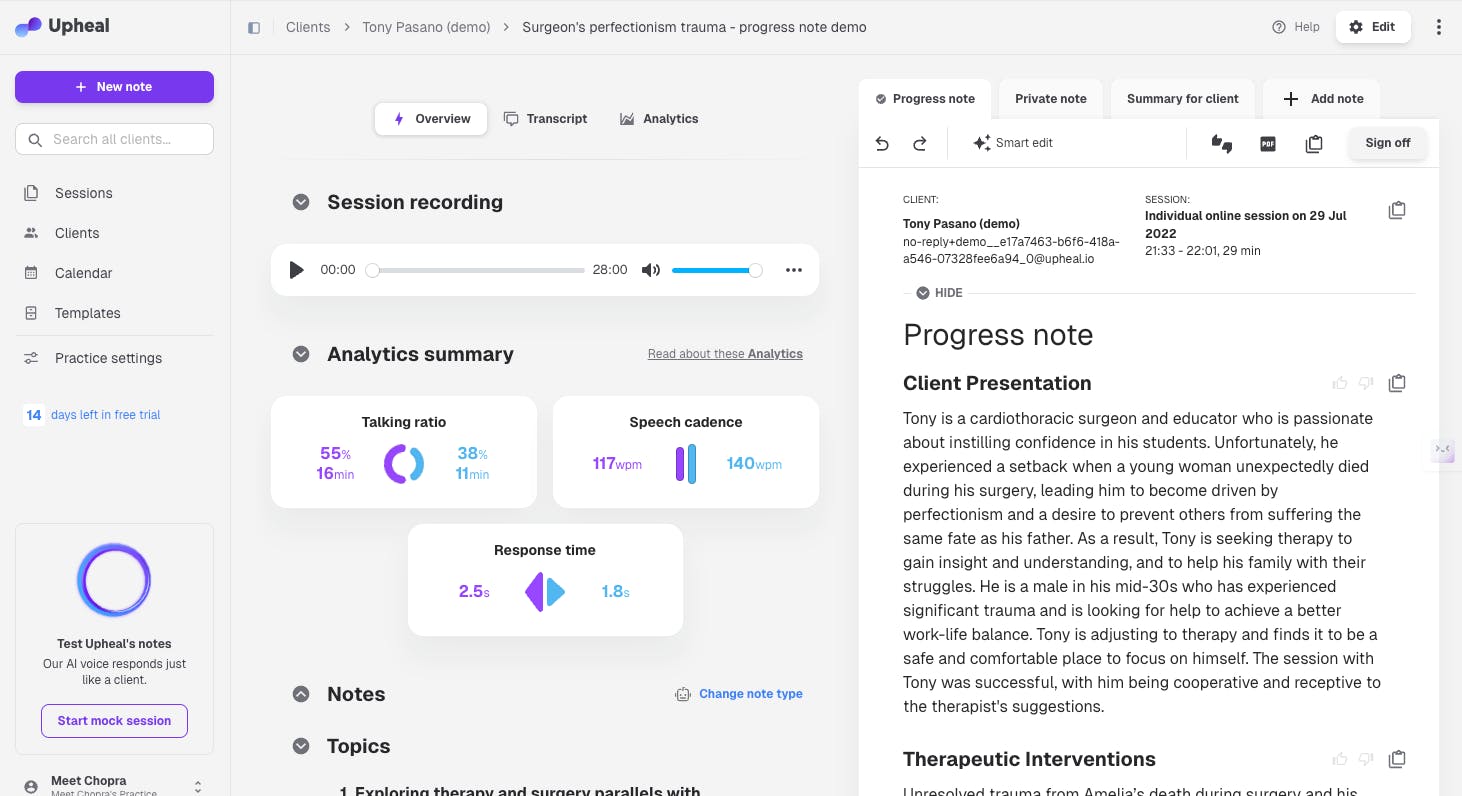
For agencies and group practices focused on supervision, training, and professional development, Upheal is more than just an AI note generator.
Upheal not only produces AI-generated notes but also analyzes therapy sessions using AI technology. It tracks metrics such as therapist vs. client talk time, session patterns, and therapeutic techniques, turning clinical documentation into a learning tool. This makes it especially appealing for behavioral health agencies that want to monitor therapist growth and improve client engagement through data-driven insights.
For note generation, Upheal supports SOAP notes and structured progress notes, with smart treatment plans included in higher-tier plans. While its interface can present a steeper learning curve, it’s a valuable tool for practices that want both AI-powered notes and training-level analytics.
Pros
- Session analytics alongside progress notes for deeper supervision
- Zoom integration available in higher tier plans
- Can double as a telehealth platform for therapy sessions
- Smart treatment plans to align with the golden thread of care
Cons
- Expensive ($99–$129/month per provider)
- More complex interface, requiring training time for most therapists
- Lower tier plans limit note formats to SOAP notes only
4. AutoNotes (Form-based note writing)
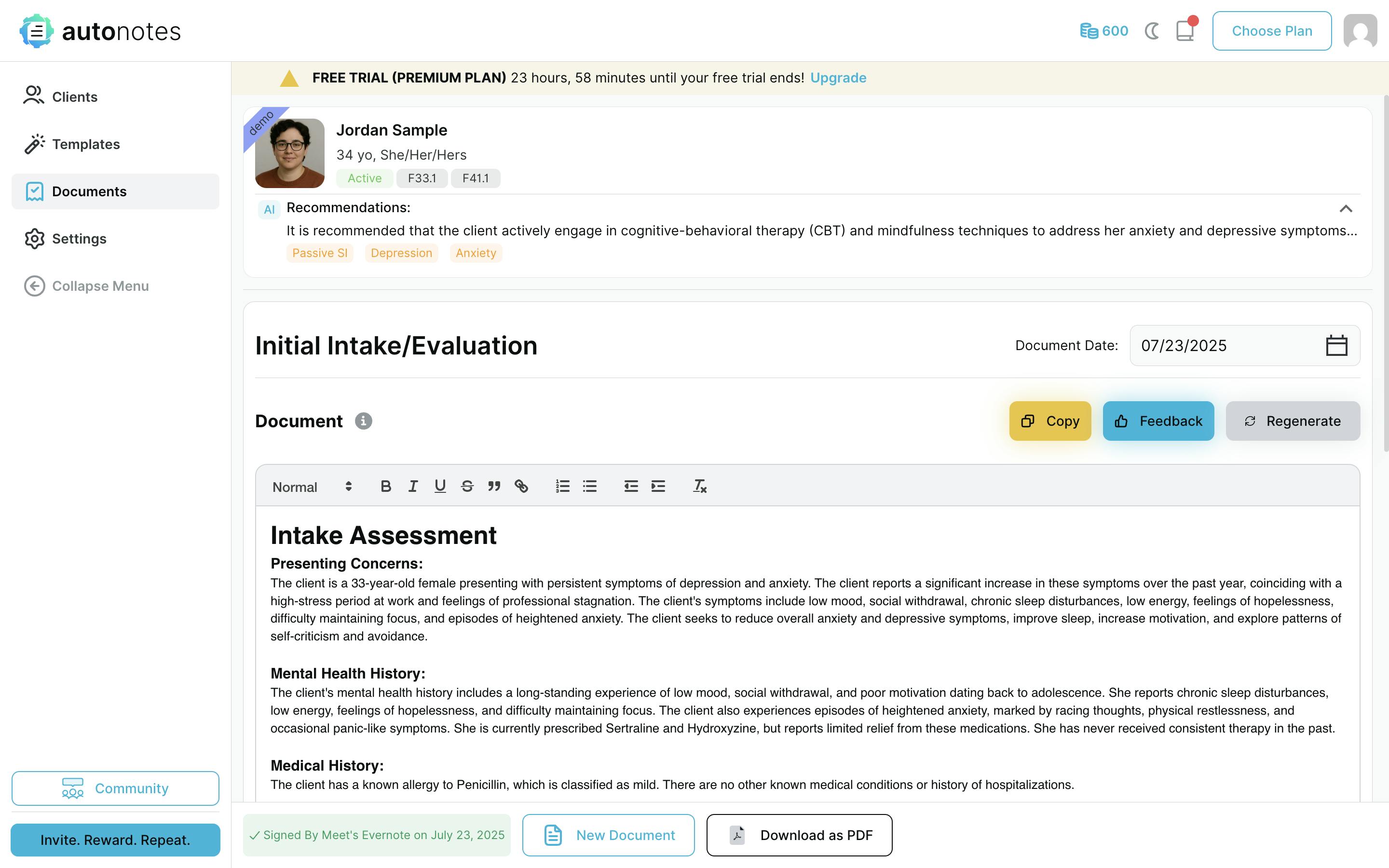
AutoNotes takes a very different approach. It is ideal for practices where therapists aren’t comfortable with audio recording or dictation.
Instead of relying on transcription, AutoNotes uses a form-based workflow. After each client session, therapists select checkboxes and dropdowns describing what occurred. The AI then compiles these into structured progress notes. This model ensures consistency while avoiding privacy concerns about audio data, though it requires more therapist input than AI-powered note taking.
For group practices, AutoNotes can work if your clinicians prefer structured, guided documentation. But at scale, the pricing model, charging per note makes it more expensive than competitors offering unlimited notes or bulk monthly plans.
Pros
- Checkbox-to-note workflow suits therapists preferring manual structure
- Supports custom templates for different note formats
- HIPAA-compliant clinical documentation without recordings
Cons
- Less time-saving than transcription-based AI tools
- High per-note pricing ($1–$1.50 each), adding up for full-time therapists
- Limited team management features for larger group practices
5. Blueprint (Comprehensive but costly)
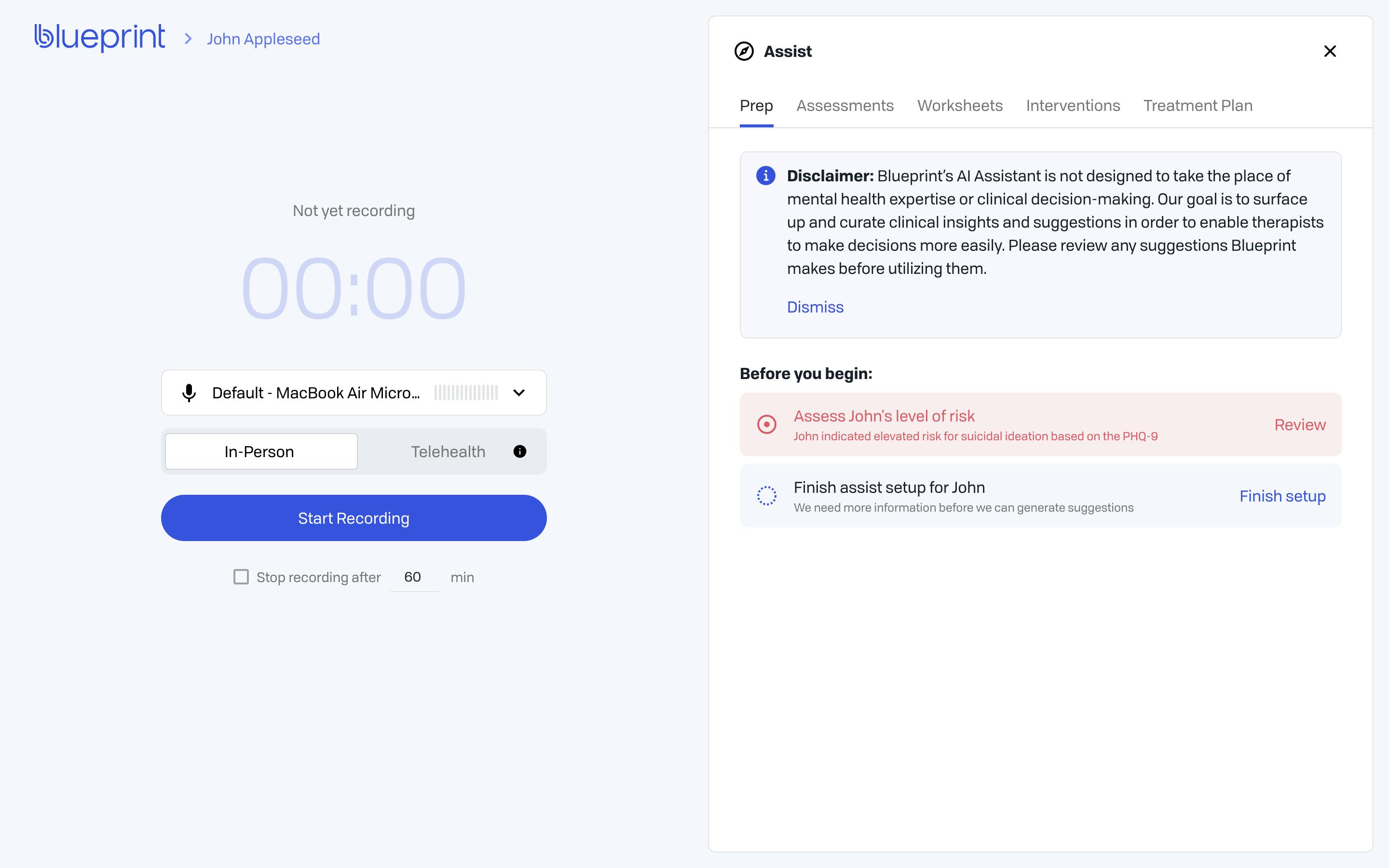
Blueprint markets itself as an all-in-one solution for behavioral health practices, combining AI therapy notes with practice management and client engagement tools.
Beyond generating SOAP notes and structured progress notes, Blueprint provides pre-session insights, client management dashboards, and even measurement tracking to support evidence-based treatment. Higher-tier plans also include smart treatment plans and unlimited notes, making it appealing for high-volume group practices.
The tradeoff is cost. Blueprint is one of the most expensive AI therapy tools, and many of its advanced features may exceed the needs of smaller private practices or single-site group practices.
Pros
- All-in-one platform: progress notes, treatment plans, client management
- Smart treatment plans with measurement tracking to reduce claim denials
- Unlimited notes in higher-tier plans
- HIPAA-compliant with robust practice management features
Cons
- High per-note pricing that adds up in group practices
- Steeper learning curve with feature overload for smaller teams
- May not be cost-effective if your group only needs therapy notes
Choosing an AI Therapy Note Tool: What to Look For
Now that we've looked at all the tools, how do you pick? What are the questions to ask while selecting an AI tool for progress notes?
- Note quality: Does the AI write notes you’d actually sign off on?
- Note formats: Does it support SOAP note format, DAP notes, and custom templates?
- In person & telehealth: Can it handle both in person and telehealth sessions seamlessly?
- Team features: Are there admin dashboards for supervisors in group practices?
- Compliance: Does the tool provide HIPAA compliance and clear data privacy policies?
- Pricing: What’s the true monthly cost for a full-time therapist or entire group?
How to Think About Pricing
The cost of an AI note tool only makes sense when weighed against the hours it saves your team.
For example, if a group practice spends $200 a month on an AI-powered note system but it saves each clinician 15–20 hours of note writing, that’s time they can redirect to more therapy sessions, supervision, or self-care. For most therapists, their hourly rate far outweighs the cost of the tool.
When evaluating pricing, ask:
- Does the platform scale with your group size?
- Are there discounts for multi-therapist teams?
- Does the plan include unlimited notes, or are you paying per note?
- Will the savings on admin time outweigh the monthly fee?
Ethical and Clinical Considerations
Even with the best AI therapy note tool for group practices, clinical responsibility stays with the therapist.
Keep in mind:
- Informed consent: Clients should know if AI is used in creating progress notes.
- Accuracy: AI notes are drafts, you must review and finalize them.
- Data privacy: Confirm HIPAA compliance, audio storage policies, and whether data is deleted immediately after transcription.
- Therapeutic relationship: Ensure that using AI doesn’t interfere with the trust and therapeutic connection you build in sessions.
FAQs
Q. Are AI therapy notes HIPAA-compliant?
A. Yes, the top AI note tools are HIPAA-compliant, but it’s important to confirm that the platform provides a signed Business Associate Agreement (BAA) and deletes audio or transcripts promptly. Supanote, for example, transcribes in real time and doesn’t store recordings, reducing data privacy concerns.
Q. Can AI therapy note tools handle group therapy sessions?
A. Yes. Leading tools like Supanote and Mentalyc support structured progress notes for individual, couple, family, and group sessions. This makes them particularly useful for practices that provide a range of therapy formats.
Q. Will using AI notes change my therapeutic connection with clients?
A. Not if handled thoughtfully. With informed consent and transparency, most clients appreciate that AI-powered note taking frees up their therapist’s mental space, allowing more focus during sessions and less time on paperwork afterward.
Q. What happens if the AI makes a mistake in my notes?
A. AI-generated notes are drafts. Therapists must review and finalize them to ensure clinical accuracy. Think of the AI as a first drafter—it saves you time, but you remain the author of record.
Q. Do these tools work for both in-person and telehealth sessions?
A.Yes. Most AI note tools support in person sessions, telehealth sessions, dictation, and even audio uploads. Some, like Upheal, also integrate directly with Zoom for telehealth workflows.
Q. How do AI note tools help with treatment plans?
A. Some platforms (like Blueprint and Upheal) integrate smart treatment plans that align notes with measurable goals and outcomes. This can help reduce claim denials and strengthen the “golden thread” of documentation across client care.
Q. Are AI notes useful for supervisors in group practices?
A. Definitely. Supervisors can use these tools to review session notes quickly, check for compliance, and ensure consistency across clinicians. Some platforms even offer session summaries and analytics for oversight.
Q. Can I create my own note templates?
A. Yes. Tools like Supanote and Mentalyc allow you to create custom templates so you can tailor SOAP, DAP, or other note formats to your practice’s specific documentation standards.
Q. How much do AI therapy note tools cost for group practices?
A. Pricing varies: Supanote starts at about $40/month for 120 notes, Mentalyc is around $60–$70/month per provider, and Upheal runs $99–$129/month for full features. AutoNotes charges per note ($1–$1.50 each), while Blueprint offers unlimited notes in higher-tier plans at $129/month.
Q. Do most therapists actually use AI notes now?
A. Adoption is growing fast. While many mental health practitioners were initially cautious, most therapists who try AI notes find they save time, reduce burnout, and improve note quality. In group practices, the time savings compound across the whole team.
Final Thoughts
AI therapy notes aren’t just about saving time, they’re about freeing up mental health professionals to focus on what matters most: patient care.
For group practices, the best AI therapy note tool is the one that balances affordability, scalability, and compliance. Supanote shines for cost-effective note generation, Mentalyc offers strong team management, and Upheal provides advanced analytics. AutoNotes and Blueprint serve more niche needs but can fit specific workflows.
If documentation is draining your clinicians and slowing your practice down, adopting AI powered note taking may be the game changer your team needs.

